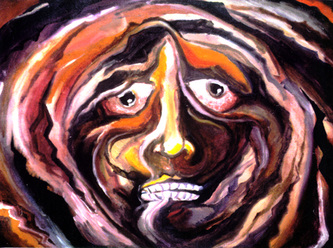Therapy Can Help With...
Whether either short or long term, therapy we be used to process some of the emotions and feelings associated with but not limited to:
Anxiety
Experiencing anxiety is normal, but persistent and excessive anxiety such as constant feelings of worry and dread can cause physical and emotional health problems like muscle aches and restlessness. Acute anxiety can result in panic attacks where there can be strong feelings of terror, losing control or breathlessness.
Bereavement and other losses
A painful experience we all go though at some point but it affects us all in different ways. It induces feelings such as sadness, anger, abandonment and loneliness.
Depression
A common health problem along with anxiety affecting one in four people; depression shows itself in many different ways - losing interest in life, difficulty sleeping, suicidal thoughts.
General life pressures
Single or multiple pressures including, money worries, family issues and health concerns.
Impact of different forms of abuse
Abuse can be in many forms which often leave a deep imprint on a person’s sense of self. It can leave amongst other things a legacy of shame, anger, self-blame, self-harm and lack of hope. Counselling can help in the process of taking back control of your life.
Intercultural issues
Culture shock, loneliness, family responsibilities, prejudices or discrimination - these are some of the issues and feelings counselling can help you cope with.
Relationship problems
Irrespective of the type of relationship it can be invaluable to look at how you function in relationships and understand patterns which influence your relationship with yourself and others.
Self harm/destructive behaviour
Taking forms such us drinking too much, cutting or taking excessive risks, self-harming is an attempt to deal with intense feelings. Counselling can help to process those powerful feelings.
Sexual issues
The issues experienced could be guilt and shame about sexual thoughts or behaviour to lack of sexual fulfilment.
Sleeping problems
Emotional difficulties can greatly affect your sleep and if it goes on for too long it can affect your physical and mental health. Along with other coping strategies it can be very helpful to explore the underlying issues behind the emotional difficulties.
Stress
A certain amount of stress is good and can help you focus and perform at work or for your exams for instance, however too much for too long can result in a range of problems such as headaches, high blood pressure and stomach upsets like irritable bowel syndrome.
Trauma and post traumatic distress
The impact of trauma, whether due to a car accident or long term abuse, can leave you feeling “on edge” and anxious, experience flashbacks and nightmares. Working at your own pace counselling help you process and integrate your feelings and experiences.
Anxiety
Experiencing anxiety is normal, but persistent and excessive anxiety such as constant feelings of worry and dread can cause physical and emotional health problems like muscle aches and restlessness. Acute anxiety can result in panic attacks where there can be strong feelings of terror, losing control or breathlessness.
Bereavement and other losses
A painful experience we all go though at some point but it affects us all in different ways. It induces feelings such as sadness, anger, abandonment and loneliness.
Depression
A common health problem along with anxiety affecting one in four people; depression shows itself in many different ways - losing interest in life, difficulty sleeping, suicidal thoughts.
General life pressures
Single or multiple pressures including, money worries, family issues and health concerns.
Impact of different forms of abuse
Abuse can be in many forms which often leave a deep imprint on a person’s sense of self. It can leave amongst other things a legacy of shame, anger, self-blame, self-harm and lack of hope. Counselling can help in the process of taking back control of your life.
Intercultural issues
Culture shock, loneliness, family responsibilities, prejudices or discrimination - these are some of the issues and feelings counselling can help you cope with.
Relationship problems
Irrespective of the type of relationship it can be invaluable to look at how you function in relationships and understand patterns which influence your relationship with yourself and others.
Self harm/destructive behaviour
Taking forms such us drinking too much, cutting or taking excessive risks, self-harming is an attempt to deal with intense feelings. Counselling can help to process those powerful feelings.
Sexual issues
The issues experienced could be guilt and shame about sexual thoughts or behaviour to lack of sexual fulfilment.
Sleeping problems
Emotional difficulties can greatly affect your sleep and if it goes on for too long it can affect your physical and mental health. Along with other coping strategies it can be very helpful to explore the underlying issues behind the emotional difficulties.
Stress
A certain amount of stress is good and can help you focus and perform at work or for your exams for instance, however too much for too long can result in a range of problems such as headaches, high blood pressure and stomach upsets like irritable bowel syndrome.
Trauma and post traumatic distress
The impact of trauma, whether due to a car accident or long term abuse, can leave you feeling “on edge” and anxious, experience flashbacks and nightmares. Working at your own pace counselling help you process and integrate your feelings and experiences.

